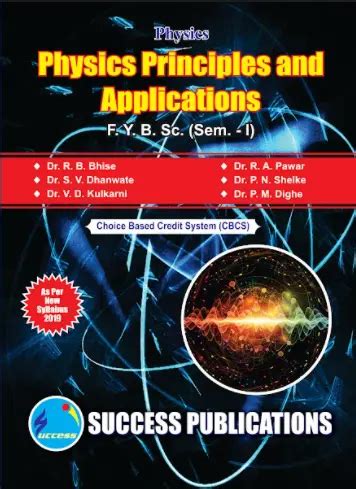Physics is the study of the fundamental laws and principles that govern the behavior of the physical universe. From the smallest subatomic particles to the vast expanse of the cosmos, physics seeks to understand the underlying mechanisms that drive the behavior of energy, matter, and space. In this article, we will explore the key principles and applications of physics in a way that is easy to understand.

What is Physics?
Physics is a branch of science that deals with the study of the natural world around us. It is concerned with the fundamental laws and principles that govern the behavior of energy, matter, and space. Physics is a vast field that encompasses a wide range of topics, from the smallest subatomic particles to the vast expanse of the cosmos.
Branches of Physics
Physics is divided into several branches, each dealing with a specific area of study. Some of the main branches of physics include:
- Mechanics: The study of motion, forces, and energy.
- Electromagnetism: The study of electricity, magnetism, and the behavior of light.
- Thermodynamics: The study of heat, temperature, and energy transfer.
- Quantum Mechanics: The study of the behavior of matter and energy at the atomic and subatomic level.
- Relativity: The study of space and time, and the behavior of objects at high speeds.
Key Principles of Physics
There are several key principles that underlie the study of physics. Some of the most important principles include:
- The Law of Conservation of Energy: Energy cannot be created or destroyed, only converted from one form to another.
- The Law of Conservation of Momentum: The total momentum of a closed system remains constant over time.
- The Law of Gravity: Objects with mass attract each other with a force proportional to their mass and the distance between them.
- The Laws of Thermodynamics: Energy transfer and conversion are governed by three laws that describe the relationships between heat, work, and energy.

Applications of Physics
Physics has a wide range of applications in our everyday lives. Some examples include:
- Technology: Physics is the basis for many modern technologies, including computers, smartphones, and televisions.
- Medicine: Physics is used in medical imaging and radiation therapy.
- Transportation: Physics is used in the design and development of cars, airplanes, and other vehicles.
- Energy: Physics is used in the development of sustainable energy sources, such as solar and wind power.
How Physics is Used in Real-World Applications
Physics is used in a wide range of real-world applications, from the smallest electronic devices to the largest structures in the universe. Some examples include:
- Computer Chips: Physics is used in the design and development of computer chips, which are used in a wide range of electronic devices.
- Medical Imaging: Physics is used in medical imaging technologies, such as MRI and CT scans.
- Aircraft Design: Physics is used in the design and development of aircraft, which must be able to withstand a wide range of stresses and forces.

The Impact of Physics on Society
Physics has had a profound impact on society, from the development of new technologies to the understanding of the universe. Some of the key ways in which physics has impacted society include:
- Advancements in Technology: Physics has led to the development of many modern technologies, including computers, smartphones, and televisions.
- Improvements in Medicine: Physics has led to the development of new medical imaging and radiation therapy technologies.
- Understanding of the Universe: Physics has led to a greater understanding of the universe, from the behavior of subatomic particles to the expansion of the cosmos.
The Future of Physics
Physics is a constantly evolving field, with new discoveries and advancements being made regularly. Some of the key areas of research in physics include:
- Quantum Computing: The development of computers that use quantum mechanics to perform calculations.
- Dark Matter and Dark Energy: The study of the mysterious forms of matter and energy that make up the majority of the universe.
- The Search for a Unified Theory: The search for a theory that can unify the fundamental forces of nature, including gravity, electromagnetism, and the strong and weak nuclear forces.

Conclusion
Physics is a vast and fascinating field that seeks to understand the underlying laws and principles that govern the behavior of the physical universe. From the smallest subatomic particles to the vast expanse of the cosmos, physics has a wide range of applications in our everyday lives. As a constantly evolving field, physics continues to advance our understanding of the universe and the world around us.






What is the difference between physics and chemistry?
+Physics is the study of the fundamental laws and principles that govern the behavior of energy, matter, and space. Chemistry is the study of the composition, properties, and reactions of matter.
What are some of the key applications of physics?
+Physics has a wide range of applications, including technology, medicine, transportation, and energy.
What is the future of physics research?
+Physics research is constantly evolving, with new discoveries and advancements being made regularly. Some of the key areas of research in physics include quantum computing, dark matter and dark energy, and the search for a unified theory.
